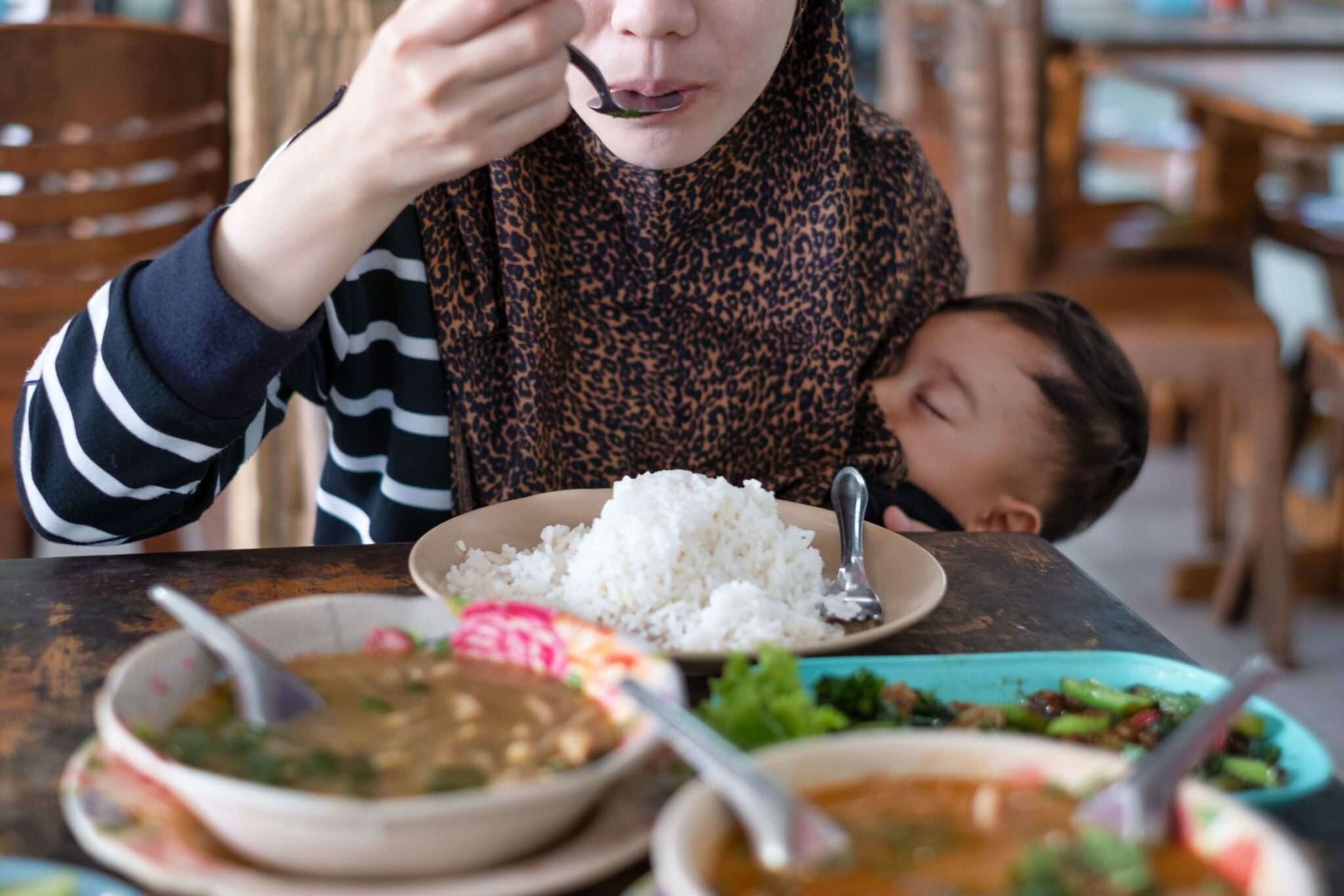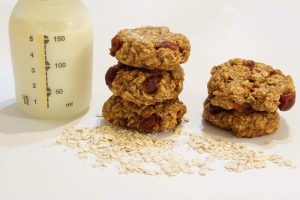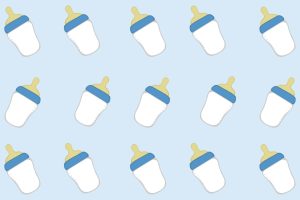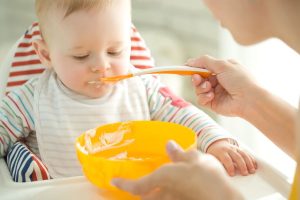What to Eat When Breastfeeding

Exclusive breastfeeding is recommended for the first six months of a baby’s life. Breastfeeding is hugely beneficial for the health of the infant, and with the right support, encouragement and advice, should not be detrimental to the mother’s own wellbeing. However, many new mothers are confused about what they should and should not be eating whilst they are breastfeeding, and it is hardly surprising; much of the advice available is conflicting or ambivalent. People rely too much on hearsay, cultural traditions and myths, and not enough on sound scientific reasoning and evidence-based recommendations.
So what is the true answer to the question of what is and is not safe to eat whilst breastfeeding?
It is actually a lot simpler than many women think. As long as her diet was healthy and balanced before breastfeeding, there is no need for a nursing mother to change her eating habits. During pregnancy, her body will have prepared for breastfeeding, storing up additional nutrients and energy, to be expended once baby is born. It should be remembered that throughout the world, women produce milk and these women are exposed to different customs and dietary habits.
What to eat whilst breastfeeding?
The best advice is to eat a healthy, varied, well-balanced diet. You will need about 330 extra calories per day during the first 6 months of breastfeeding and 400 extra calories per day during the second 6 months of breastfeeding compared to the amount you used to consume before pregnancy. Focus on getting these calories from nutrient-dense foods that are high in vitamins and minerals.
Here are some examples of meals that you add to your usual intake and that contain about 330-400 calories:
Meals:
- Grilled chicken salad with mixed greens, vegetables, and a vinaigrette dressing (approx. 350 calories)
- Veggie and cheese omelet with whole grain toast (approx. 380 calories)
- Brown rice bowl with stir-fried vegetables, tofu, and a sauce (approx. 380 calories)
- Whole grain pita stuffed with hummus, veggies, and grilled chicken (approx. 350 calories)
Snacks:
- Greek yogurt with fruit and nuts (approx. 330 calories)
- Apple slices with almond butter (approx. 330 calories)
- Whole grain crackers with avocado and salsa (approx. 380 calories)
- Baked sweet potato with black beans, cheese, and salsa (approx. 390 calories)
- Trail mix with nuts, seeds, dried fruit, and dark chocolate (approx. 350 calories)
Some of the best food options to include in your daily diet include:
- Fruits and vegetables. Rich in potassium, vitamin A and antioxidants.
- Grains. Use whole grains, as these do not contain added sugar and aim for about 225g per day. Eat brown rice and wholemeal bread. Quinoa is a good grain to incorporate into your diet, as it is also high in protein.
- Protein. Intake should be increased by about 25g per day whilst breastfeeding.
- Dairy. Calcium is very important for breastfeeding mothers. Whilst nursing, women lose between 3 and 5% of their bone mass as their baby absorbs extra calcium. Oestrogen levels also decline after birth and, as this hormone is normally involved in bone protection, lower levels can contribute to a (transient) reduction in bone health. Once the baby is weaned, most women find that their bone health is rapidly returned to normal. Women who are breastfeeding should consume 1000mg calcium per day and those who do not eat dairy can increase their intake by incorporating dark leafy greens, beans and fortified orange juice into their diet.
- Sea food. The evidence with regards to seafood is slightly mixed. Most seafood is highly beneficial; it is a good source of protein, as well as naturally rich in omega-3 fatty acids, specifically docosahexaenoic acid (DHA). DHA plays a role in the development of the eyes and the central nervous system. However, some seafood should be avoided as it contains high levels of mercury, which can harm the developing nervous system. Therefore, larger fish, such as swordfish, shark and king mackerel are best avoided whilst breastfeeding
Many women rely on supplements whilst breastfeeding. These cannot replace a healthy diet, but with the increased nutritional demands that breastfeeding places on the mother’s body, careful use of supplements may prove beneficial. This is particularly true for women who have dietary restrictions, or who follow a vegan or vegetarian lifestyle. Breastfeeding mothers who are deficient in certain vitamins will, as a consequence, secrete fewer vitamins into their breast milk. This includes vitamins A, D, K, C and members of the B family. Maternal supplementation will increase the levels of these vitamins in the breast milk. Consult a doctor before taking any supplements.
Whilst there are small adjustments you can make to your diet to ensure optimal health for you and your baby, there is very little evidence that eating particular foods can increase milk supply. For a review on the best ways to boost milk supply click here. Ensuring that you drink plenty of water will reduce the risk of dehydration, which can cause a diminished milk supply.
Foods to avoid
There are certain food types that breastfeeding mothers avoid, usually on the basis of vague concerns or misguided advice from friends and relatives. In fact, one survey of 165 nursing women found that all avoided at least one type of food and most avoided four or five. 90% avoided caffeine, 85% avoided spicy food, 75% avoided raw food and 69% avoided cold food.
In fact, unlike pregnancy, there is no list of foods to definitively avoid while breastfeeding; this is because many of the harmful ingredients that cross the placenta do not pass into the breast milk. Alcohol is one thing that is best avoided during both pregnancy and breastfeeding. It readily crosses the placenta via the bloodstream and, after delivery, also passes into breast milk. The level of alcohol in breast milk will match the mother’s blood alcohol levels. Furthermore, a high intake of alcohol can interfere with the milk ejection reflex, making breastfeeding a lot more challenging.
Caffeine should not be consumed in excess whilst breastfeeding, but as less than 1% of the amount taken in by the mother is transferred to the breast milk, having two or three cups of coffee a day will not be detrimental. Drinking more than five cups might cause levels of caffeine to start to accumulate in the infant. Thus, moderation is more important than complete avoidance.
Breastfeeding mothers regularly avoid eating spicy food and gassy food (cruciferous vegetables). However, gas does not pass into breast milk and, whilst strong flavours can change the smell and taste of breastmilk, there is some evidence that this actually improves a child’s palate as they grow.
Raw food is avoided because of the increased risk of food poisoning. It is actually very unusual for food poisoning to be transmitted from mother to baby, except in rare cases of infection with septicaemia bacteria. Breastfeeding mothers may choose to avoid foods that have any association with food poisoning on the basis that caring for a child is very difficult when you are unwell yourself.
In parts of Asia and within non-Western cultures it is common for breastfeeding women to be told to avoid cold food, with the belief that maintaining a warm body is important. In fact, the temperature of breast milk is maintained through thermoregulation and there is no evidence that cold food affects the quality or supply of breast milk.
There are cases where a mother does have to carefully consider her own diet during breastfeeding, such as when her child is diagnosed with a cows milk protein allergy (CMPA). In these cases the mother will usually be placed on an elimination diet, with food reintroduced gradually so that specific triggers can be identified. However, for children without specific dietary issues, there is no evidence that pre-emptively avoiding certain food types as a breastfeeding mother will prevent the later development of allergies in the child.
Try Nabta’s postpartum pack to take good care of yourself while you’re on this journey.
Nabta is reshaping women’s healthcare. We support women with their personal health journeys, from everyday wellbeing to the uniquely female experiences of fertility, pregnancy, and menopause.
Get in touch if you have any questions about this article or any aspect of women’s health. We’re here for you.
Sources:
- “Alcohol | Breastfeeding | CDC.” Centers for Disease Control and Prevention, https://www.cdc.gov/breastfeeding/breastfeeding-special-circumstances/vaccinations-medications-drugs/alcohol.html.
- Jeong, Goun, et al. “Maternal Food Restrictions during Breastfeeding.” Korean Journal of Pediatrics, vol. 60, no. 3, Mar. 2017, pp. 70–76., doi:10.3345/kjp.2017.60.3.70.
- Kominiarek, Michelle A., and Priya Rajan. “Nutrition Recommendations in Pregnancy and Lactation.” Medical Clinics of North America, vol. 100, no. 6, Nov. 2016, pp. 1199–1215., doi:10.1016/j.mcna.2016.06.004.
- “Pregnancy, Breastfeeding and Bone Health.” National Institutes of Health, U.S. Department of Health and Human Services, https://www.bones.nih.gov/health-info/bone/bone-health/pregnancy.
- “When Breastfeeding, How Many Calories Should Moms and Babies Consume?” Eunice Kennedy Shriver National Institute of Child Health and Human Development, U.S. Department of Health and Human Services, https://www.nichd.nih.gov/health/topics/breastfeeding/conditioninfo/calories.










